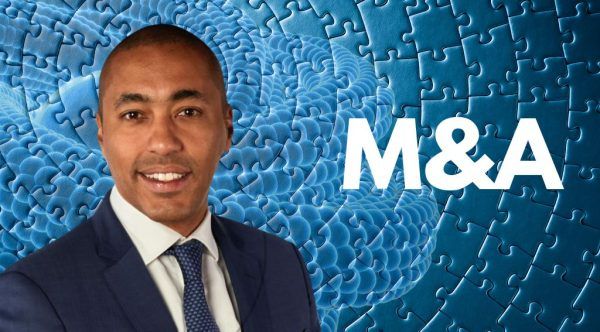The sports betting industry is currently in a state of flux, with potential acquisitions and mergers on the horizon. One such possibility is the acquisition of PENN Entertainment by Flutter and Boyd Gaming. This potential tri-party deal is intriguing but complex, and it could significantly reshape the landscape of the domestic sports betting market.
PENN Entertainment, a gambling company that owns more than three dozen casino properties nationwide, is currently considering an acquisition bid from Boyd Gaming Corp. Flutter, the parent company of FanDuel, is reportedly interested in acquiring certain assets of PENN Entertainment, including ESPN BET. This potential power play could be the latest shakeup in a rapidly changing market that has seen dramatic shifts since the historic PASPA decision less than seven years ago.
The potential acquisition of PENN by Boyd is fraught with complications. Boyd, being the smaller of the two companies, faces a challenge in acquiring PENN, which was trading at around $20 a share for a valuation of roughly $9 billion last month. This is considerably higher than Boyd’s valuation of $7.8 billion at the time. Despite these challenges, Flutter, which moved its primary listing to the New York Stock Exchange this spring, is reportedly “sizing up” the company.
Source: SiGMA
Tri-party deals are typically complex, and this potential acquisition is no exception. A merger becomes exponentially more difficult to complete when additional parties appear at the negotiating table. Numerous other parties would need to sign off on a deal, including Gaming and Leisure Properties, Inc., a real estate investment trust that owns PENN’s retail casino properties. With the future of ESPN BET at stake, a transaction would require Disney’s consent. From a financing standpoint, a potential transaction will involve a good amount of capital markets participants. Finally, a multibillion-dollar deal could bring anti-trust concerns, requiring potential approval from the Federal Trade Commission.
Despite these complexities, the companies involved have familiarity with one another. In April, PENN appointed former Disney Entertainment Chief Technology Officer Aaron LaBerge to lead the company’s online division. Last week, Flutter made two additions to its Board of Directors, including the appointment of former Disney executive Christine McCarthy. At one point, McCarthy served as chief finance officer at Disney. Boyd, meanwhile, recently appointed former Barclays banker Michael Hartmeier to its board, fuelling speculation that it could be pursuing an M&A transaction.
Dynamics of PENN Entertainment
The M&A rumours have picked up steam in recent weeks after activist investor Donerail Group issued a letter to PENN shareholders calling for the sale of the company. The investor expressed criticism toward PENN for perceived profligate spending on the digital side.
Last August, PENN and ESPN announced a transformative deal that led to the launch of ESPN BET. Given the network’s universally recognized brand, the transaction represented the first time a major network lent its name to a new sportsbook in the U.S. Wayne Kimmel, a prominent venture capitalist with Seventy-Six Capital, believes the operator can eventually vault to the top of the market.
But since ESPN BET has yet to celebrate its first birthday, a valuation for the operator as a standalone asset can be tricky. Remember, ESPN BET launched last November around the midway point of the NFL season. By September, the operator will be live for the first time in the opening week of the season. For ESPN BET, the return of football will bring a massive customer acquisition opportunity. Barry Jonas, an analyst with Truist Securities, views the period as an opportunity for ESPN BET to capitalize on key product milestones.
As of April, ESPN BET garnered a national market share of around 6 percent, according to various estimates. The figures comport with projections from Barclays last year near the launch. At the time, Barclays projected OSB market share of 6.1 percent in the fourth quarter of 2023, compared with 2.8 percent in the previous quarter under Barstool Sportsbook. For the second half of this year, Barclays’ models expect ESPN BET to produce a national market share of around 7 percent. The share is far below PENN Entertainment CEO Jay Snowden’s expectations of 20 percent+ by the end of 2027.
Under the deal, PENN is paying ESPN $1.5 billion over 10 years, plus an option to acquire $500 million in warrants. The deal contains an opt-out after three years. Given the high customer acquisition costs, PENN noted in May that its interactive segment will face an adjusted EBITDA loss range of $475 million to $525 million in 2024. As it relates to Flutter, questions remain about whether the company will pay a considerable amount to bring on a competitor. Flutter’s balance sheet is in an ideal position if the company decides to pursue new opportunities in M&A, JMP Securities analyst Jordan Bender wrote in a research note released on Tuesday.
PENN traded at $19.70 this week, down 1.8 percent. PENN opened the year around $26 a share, but has rebounded from 2024 lows of $14 last month. Flutter posted fractional gains on Tuesday to trade at $198 a share, while Boyd inched up to $54.75.
SiGMA East Europe Summit powered by Soft2Bet will take place in Budapest from 2-4 September.































